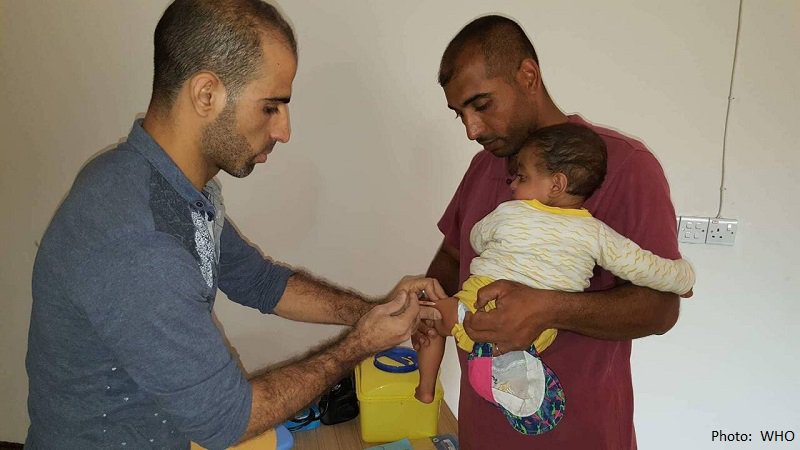For more than 3 years, the people of Hawiija [Hawijah] district in Kirkuk governorate, were cut off from lifesaving health care and immunization services, leaving many children susceptible to vaccine-preventable diseases. “For years, I worried that my children may contract polio and measles or die,” said Hadija, a 32-year-old mother of 3.
In September 2017, the district became accessible following military operations launched by the Government of Iraq. WHO, together with Kirkuk Directorate of Health, immediately deployed mobile medical teams to provide immunization services, and health care for people suffering from trauma injuries or chronic disease conditions.
Five mobile medical teams were deployed to Khan, Tal Ali, Abbassi, Masanaa, Al Zab and Ryadh areas. Since then, from mid-September to 15 November 2017, more than 10000 people in Hawiija district have benefited from WHO’s support, including 1563 children vaccinated against childhood immunizable diseases.
Although these newly accessible areas are still security compromised, WHO saw an urgency in delivering health care to thousands of people that had been cut off from aid for years, and whose health was being compromised day by day. Five main health facilities have been partially or completely damaged, in addition to Hawija general hospital. Currently, only the Kirkuk Directorate of Health and WHO-supported frontline health teams are delivering immunization services in these areas.

